Information and analytical sector
of CONSTITUTIONAL COURT of UKRAINE
01033, Kyiv, Zhylianska, 14
tel. 238-10-80, 238-10-25
fax. 287-36-16
Judges of the Constitutional Court of Ukraine took part
in the 4th Congress of the World Conference on Constitutional Justice
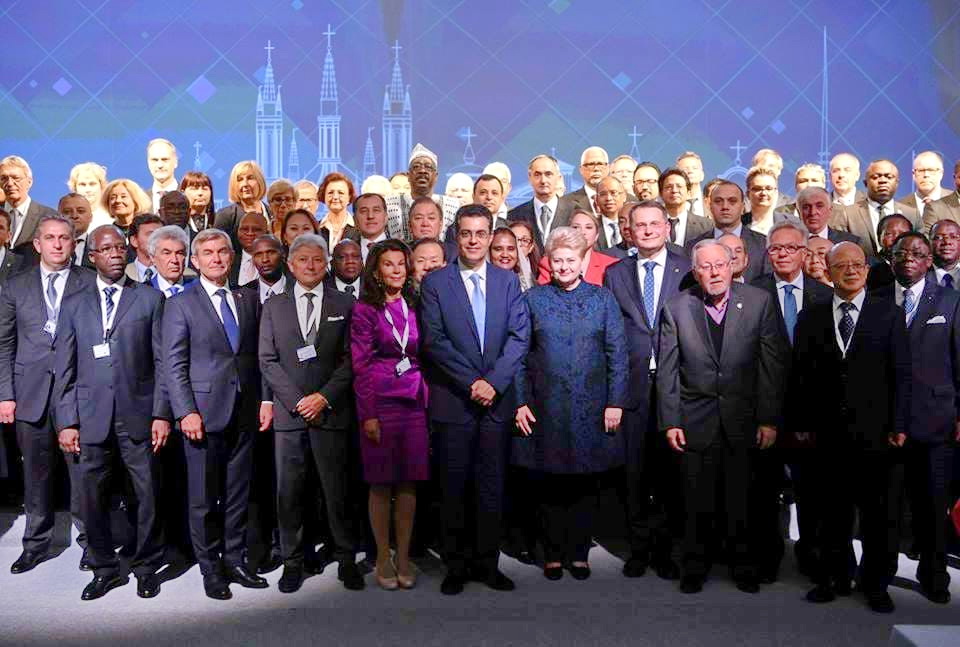 On September 10–15, 2017, at the invitation of the President of the Constitutional Court of the Republic of Lithuania Dainius Žalimas the delegation of the Constitutional Court of Ukraine, took part in the 4th Congress of the World Conference on Constitutional Justice "The Rule of Law and Constitutional Justice in the Modern World", held in Vilnius, Republic of Lithuania.
On September 10–15, 2017, at the invitation of the President of the Constitutional Court of the Republic of Lithuania Dainius Žalimas the delegation of the Constitutional Court of Ukraine, took part in the 4th Congress of the World Conference on Constitutional Justice "The Rule of Law and Constitutional Justice in the Modern World", held in Vilnius, Republic of Lithuania.
The delegation included the Acting Chairman of the Constitutional Court of Ukraine Viktor Kryvenko, judges of the Constitutional Court of Ukraine Ihor Slidenko and Stanislav Shevchuk and former judge of the Constitutional Court of Ukraine Viktor Shyshkin.
The event was organised by the Constitutional Court of the Republic of Lithuania jointly with the European Commission for Democracy through Law of the Council of Europe (Venice Commission).
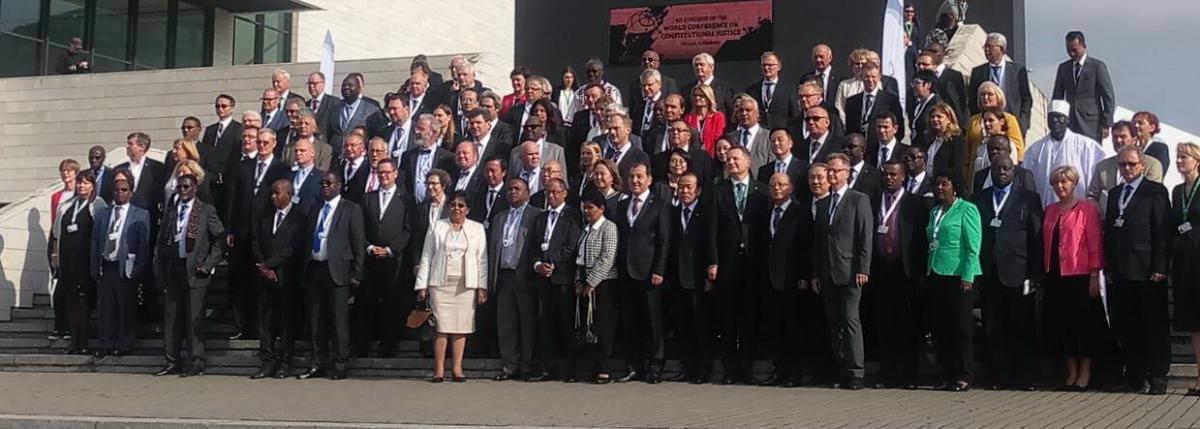 The purpose of the Congress was to promote international dialogue between the bodies of constitutional justice of the world as well as strengthening the constitutional justice as a key element of democracy, the protection of human rights and the rule of law.
The purpose of the Congress was to promote international dialogue between the bodies of constitutional justice of the world as well as strengthening the constitutional justice as a key element of democracy, the protection of human rights and the rule of law.
The Congress of the World Conference on Constitutional Justice (WCCJ) is the organisation uniting bodies of constitutional control of 110 countries from Europe, Africa, America, Asia and Australia. Since 2009, the WCCJ Congresses have been held every three years each time hosted by another continent. The last Congress took place in 2014 in Seoul (Republic of Korea).
The Constitutional Court of Ukraine is a member of the WCCJ since 2011 and is among its founders. Representatives of the Constitutional Court of Ukraine participated in previous congresses heled in 2009 in Cape Town (South Africa), in 2011 in Rio de Janeiro (Brazil) and in 2014 in Seoul (Republic of Korea).
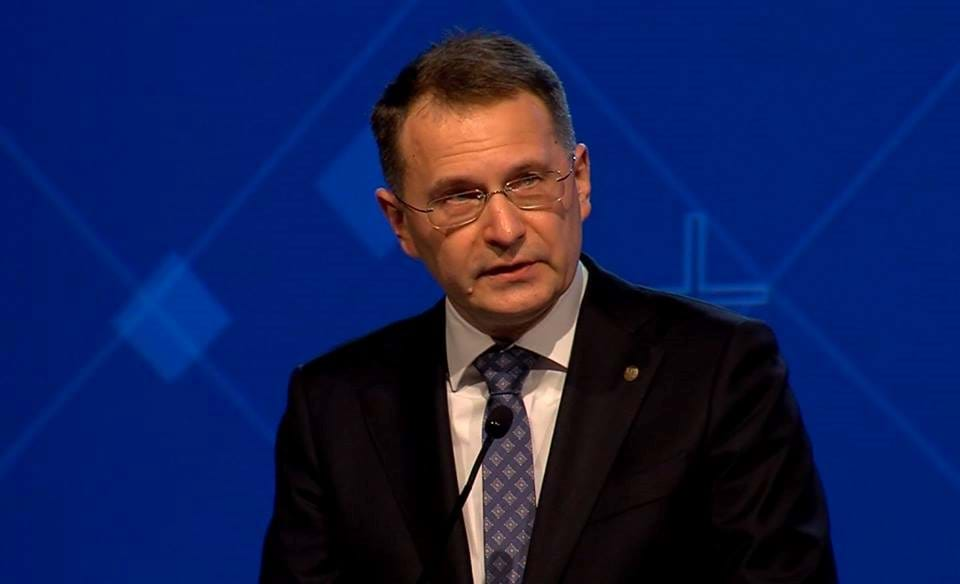 The Congress in Vilnius was opened by the President of the Constitutional Court of the Republic of Lithuania Dainius Žalimas. He noted the importance of constitutional justice in the modern world and stressed that the rule of law includes all human values. Therefore, the task of each constitutional court is to protect human dignity and guarantee human rights.
The Congress in Vilnius was opened by the President of the Constitutional Court of the Republic of Lithuania Dainius Žalimas. He noted the importance of constitutional justice in the modern world and stressed that the rule of law includes all human values. Therefore, the task of each constitutional court is to protect human dignity and guarantee human rights.
The President of the Constitutional Court of the Republic of Lithuania also dwelt on the issue of the Constitutional Court of the Russian Federation which had discredited itself by its decision on the annexation of the Crimea. Such actions are a crime, noted Dainius Žalimas. After all, world practice does not have similar precedents, where the body of constitutional justice would be used by the authorities for criminal purposes.
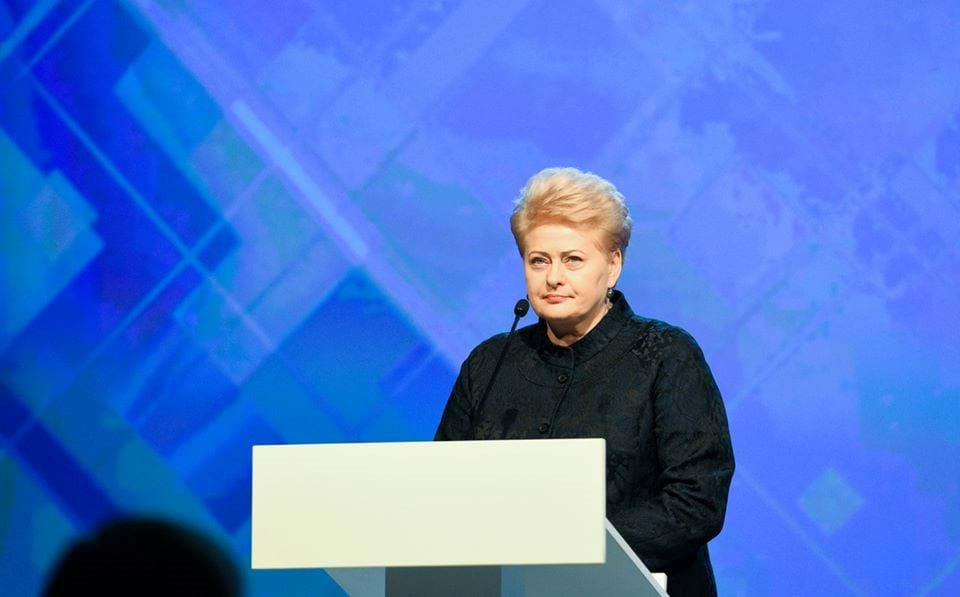 The opening speech was also delivered by the President of the Republic of Lithuania Dalia Grybauskaitė. She expressed confidence that the Congress is a significant contribution to the protection and strengthening the rule of law, peace and security throughout the world. After all, there are new attempts in Europe to "redraw" state borders by force. And the military aggression in the east of Ukraine and the occupation of the Crimea are accompanied by attempts to question the authority of the European Court of Human Rights.
The opening speech was also delivered by the President of the Republic of Lithuania Dalia Grybauskaitė. She expressed confidence that the Congress is a significant contribution to the protection and strengthening the rule of law, peace and security throughout the world. After all, there are new attempts in Europe to "redraw" state borders by force. And the military aggression in the east of Ukraine and the occupation of the Crimea are accompanied by attempts to question the authority of the European Court of Human Rights.
There was nothing more cynical about using the constitutional court in some countries to commit and justify crimes, said the President. Because in this way, not only the overt abuse of constitutional justice is carried out, but its mission to guarantee the rule of law is also discredited.
In his welcoming speech, Vice-President of the European Court of Human Rights Linos-Alexander Sicilianos drew attention to the fact that the European Court of Human Rights and constitutional courts have some differences, but their main function is the protection of human rights.
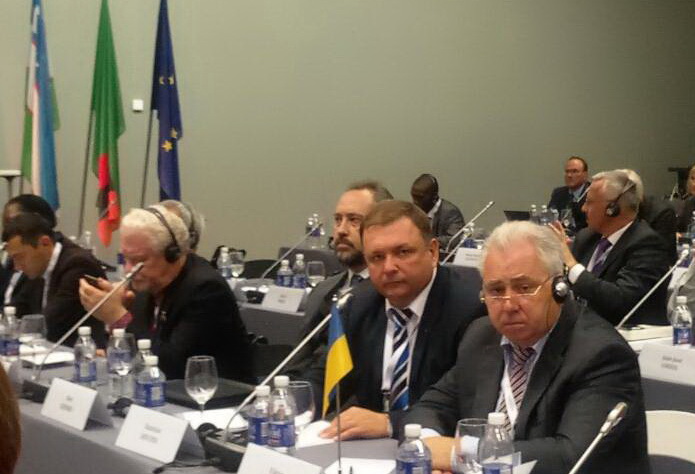 President of the Venice Commission of the Council of Europe Gianni Buquicchio recalled that the number of member countries of the WCCJ is constantly increasing. It has recently been joined by such bodies of constitutional justice as the Federal Court of Malaysia, the Constitutional Court of South Africa, the Constitutional Council of Ethiopia and the Supreme Court of Kenya.
President of the Venice Commission of the Council of Europe Gianni Buquicchio recalled that the number of member countries of the WCCJ is constantly increasing. It has recently been joined by such bodies of constitutional justice as the Federal Court of Malaysia, the Constitutional Court of South Africa, the Constitutional Council of Ethiopia and the Supreme Court of Kenya.
The representatives of 91 countries of the bodies of constitutional justice from all over the world attended the Congress. In particular, presidents and judges of the bodies of constitutional jurisdiction of the Republic of Azerbaijan, the People's Democratic Republic of Algeria, the Arab Republic of Egypt, the Republic of Armenia, the Republic of Ecuador, Canada, the Republic of Guinea-Bissau, the Kingdom of Spain, the Republic of Kazakhstan, the Republic of Moldova, the Netherlands, the Republic of South Africa, the Republic of Panama, the Portuguese Republic, the Czech Republic, the Islamic Republic of Mauritania, the Republic of Zambia and many other countries, in total 422 participants.
Judges of the Constitutional Court of the Russian Federation were not invited to the event in view of the Court’s decision on the annexation of the Crimea. The migration department, at the suggestion of the Ministry of Foreign Affairs of the Republic of Lithuania included the judges of this court to the list of persons who are prohibited to enter to the Republic of Lithuania. Judges of the Constitutional Court of the Russian Federation who contributed to the annexation of the Crimea were informed of this decision of Lithuania last winter.
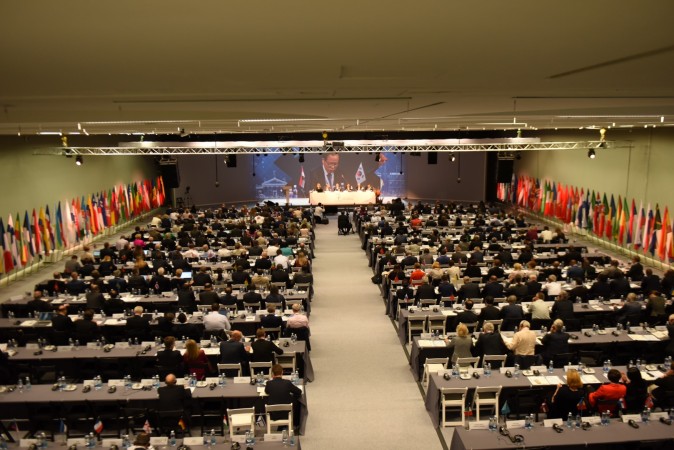 The programme of the Congress included 5 session dedicated to the topical issues of modern constitutional law. In particular, the first one was devoted to the different concepts of the rule of law of different countries of the world. During the second session, new challenges that arise before the rule of law were considered. At the third session, the relationship between law and the state in the context of constitutional proceedings were discussed, and the fourth session was dedicated to the relationship between the individual and the state. At the fifth session, participants discussed recent developments on the independence of constitutional courts.
The programme of the Congress included 5 session dedicated to the topical issues of modern constitutional law. In particular, the first one was devoted to the different concepts of the rule of law of different countries of the world. During the second session, new challenges that arise before the rule of law were considered. At the third session, the relationship between law and the state in the context of constitutional proceedings were discussed, and the fourth session was dedicated to the relationship between the individual and the state. At the fifth session, participants discussed recent developments on the independence of constitutional courts.
Considerable attention during the Congress was paid to Ukraine and condemnation of violation of the territorial integrity of our state by Russia.
The following speakers delivered speeches at the Congress sessions: Vice-President of the Supreme Constitutional Court of the Arab Republic of Egypt Adel Omar Sherif, Acting President of the Constitutional Court of the Republic of Korea Yi-Su Kim, President of the Constitutional Court of the Algerian People's Democratic Republic Mourad Medelci, member of the Constitutional Council of the Republic of Kazakhstan R.Mukashev, President of the Constitutional Court of the Republic of Azerbaijan Farhad Abdullayev, Judge of the Constitutional Court of the Portuguese Republic Claudio Ramos Monteiro, President of the Supreme Court of the Republic of Guinea-Bissau Paulo Sanya, Former President of the Constitutional Court of the Republic of Moldova Alexandru Tănase, President of the Constitutional Court of the Republic of Armenia Gagik Harutyunyan, Vice-President of the Constitutional Court of the Republic of Ecuador Pamela Martínez de Salazar, Judge of the Constitutional Court of the Republic of Lithuania Gediminas Mesonis, Judge of the Constitutional Court of the Republic of Austria Christoph Grabenwarter, President of the Constitutional Court of the Republic of South Africa Mogoeng Mogoeng, Judge of the Constitutional Court of the Republic of Indonesia Maria Farida Indrati, President of the Swiss Federal Tribunal Ulrich Meyer, Judge of the Supreme Court of Canada Richard Wagner, Judge of the Constitutional Court of Chile Domingo Hernández Emparanza, President of the Constitutional Court of the Gabonese Republic Marie Madeleine Mborantsuo.
Judge of the State Council of the Kingdom of the Netherlands Ben Vermeulen made a presentation of the Checklist of the Rule of Law of the Venice Commission.
 Judge of the Constitutional Court of Ukraine Ihor Slidenko during the discussion on challenges in modern law stressed the anti-legal nature of the decisions of the Parliament and the Constitutional Court of the Russian Federation in the field of individual rights and the annexation of the territory of sovereign states, in particular the Crimea.
Judge of the Constitutional Court of Ukraine Ihor Slidenko during the discussion on challenges in modern law stressed the anti-legal nature of the decisions of the Parliament and the Constitutional Court of the Russian Federation in the field of individual rights and the annexation of the territory of sovereign states, in particular the Crimea.
Judge of the Constitutional Court of Ukraine Stanislav Shevchuk on behalf of the Ukrainian delegation called on the participants of the Conference not to deal with political issues, as the constitutional courts do not impose sanctions, but implement constitutional justice. He reminded those present that the judges of the Constitutional Court of the Russian Federation are under Ukrainian sanctions for complicity in the annexation of the Crimea. Therefore, in a legal state this issue belongs to the government (executive power), and not the Constitutional Court.
During its 12th meeting, the WCCJ Bureau discussed the situation in Republic of Kenya. Under the pressure of political power, the Supreme Court of this state abolished the results of the presidential elections. In particular, this year on September 1, the Court declared invalid the August presidential elections and decided on new elections within two months. Therefore, the WCCJ Bureau adopted a declaration on the support of the Supreme Court of the Republic of Kenya.
Following the results of the Congress, the Vilnius Communiqué was adopted, which emphasises that the rule of law is the cornerstone of every legal system and is closely linked to democracy and the protection of human rights.
The 5th Congress of the World Conference on Constitutional Justice will take place in 2020 and will be hosted by the Constitutional Council of Algeria.

